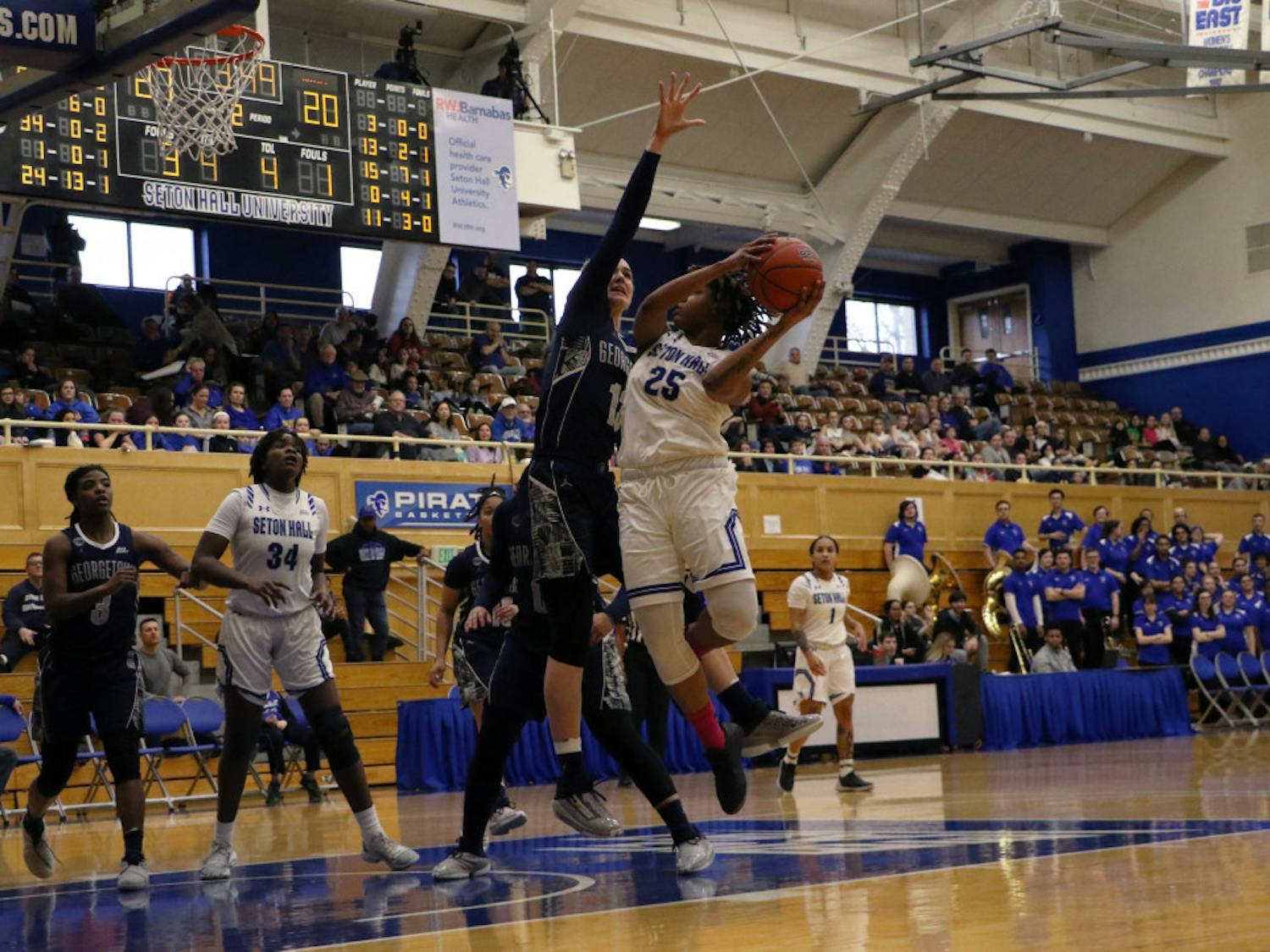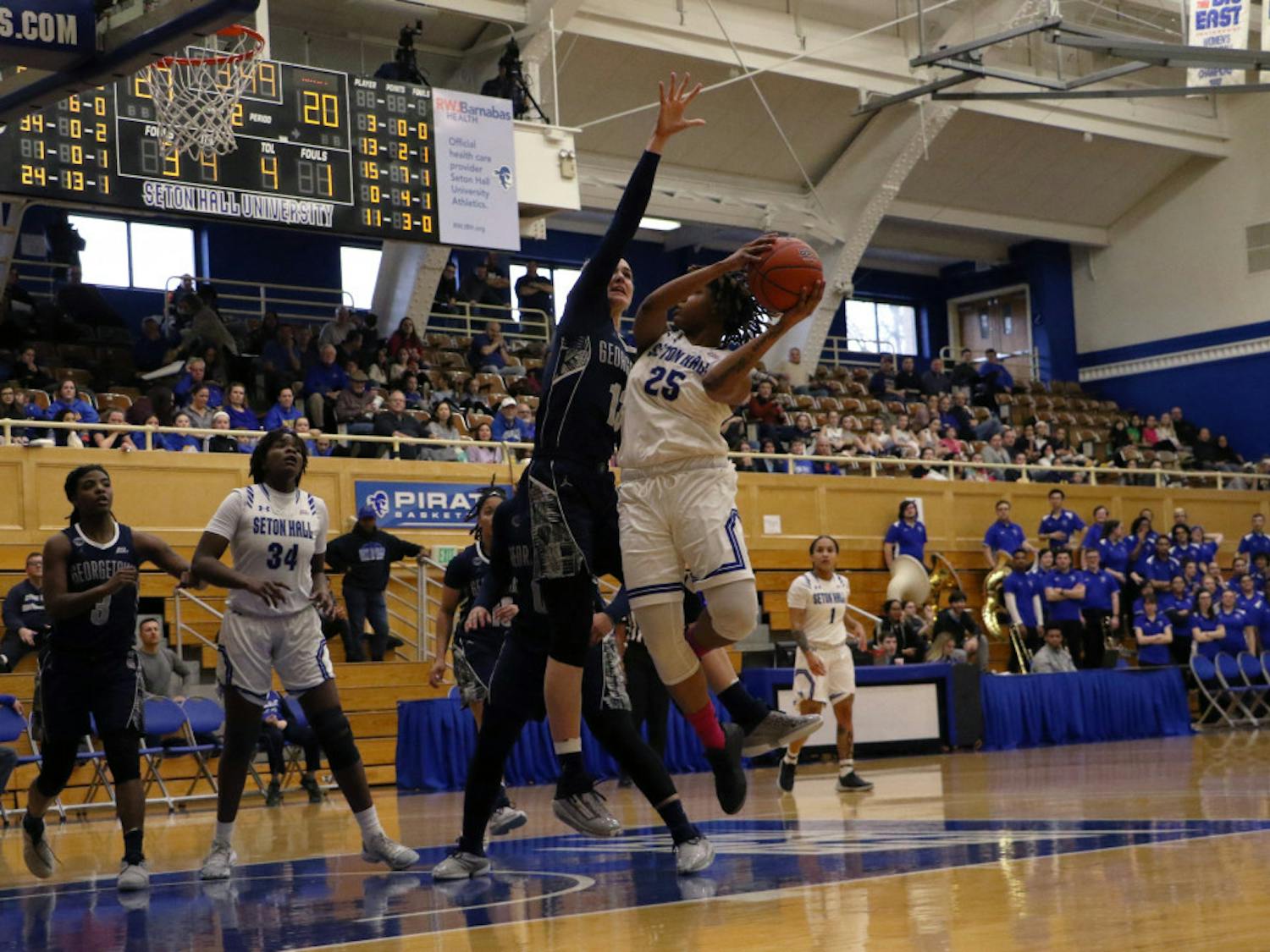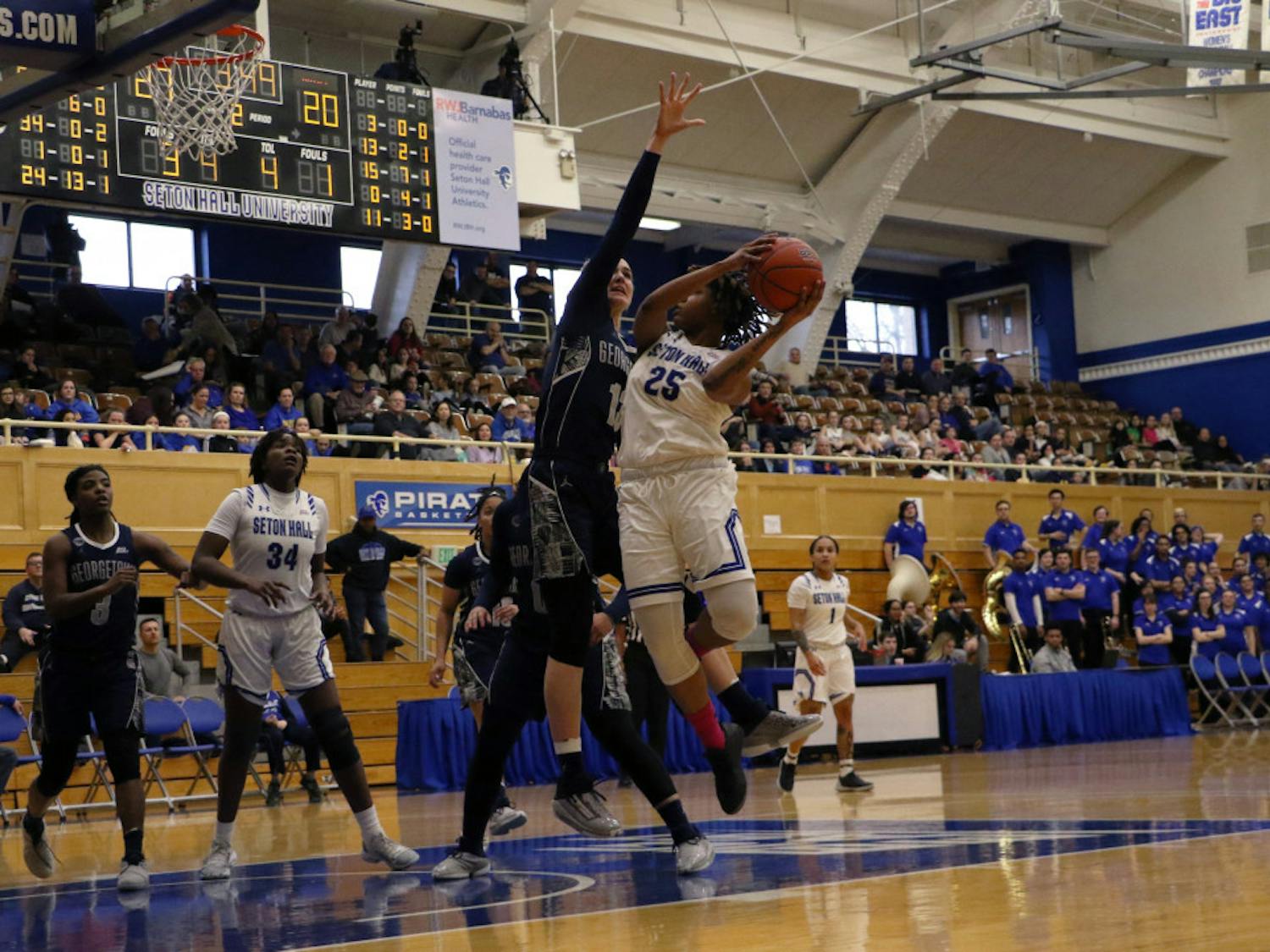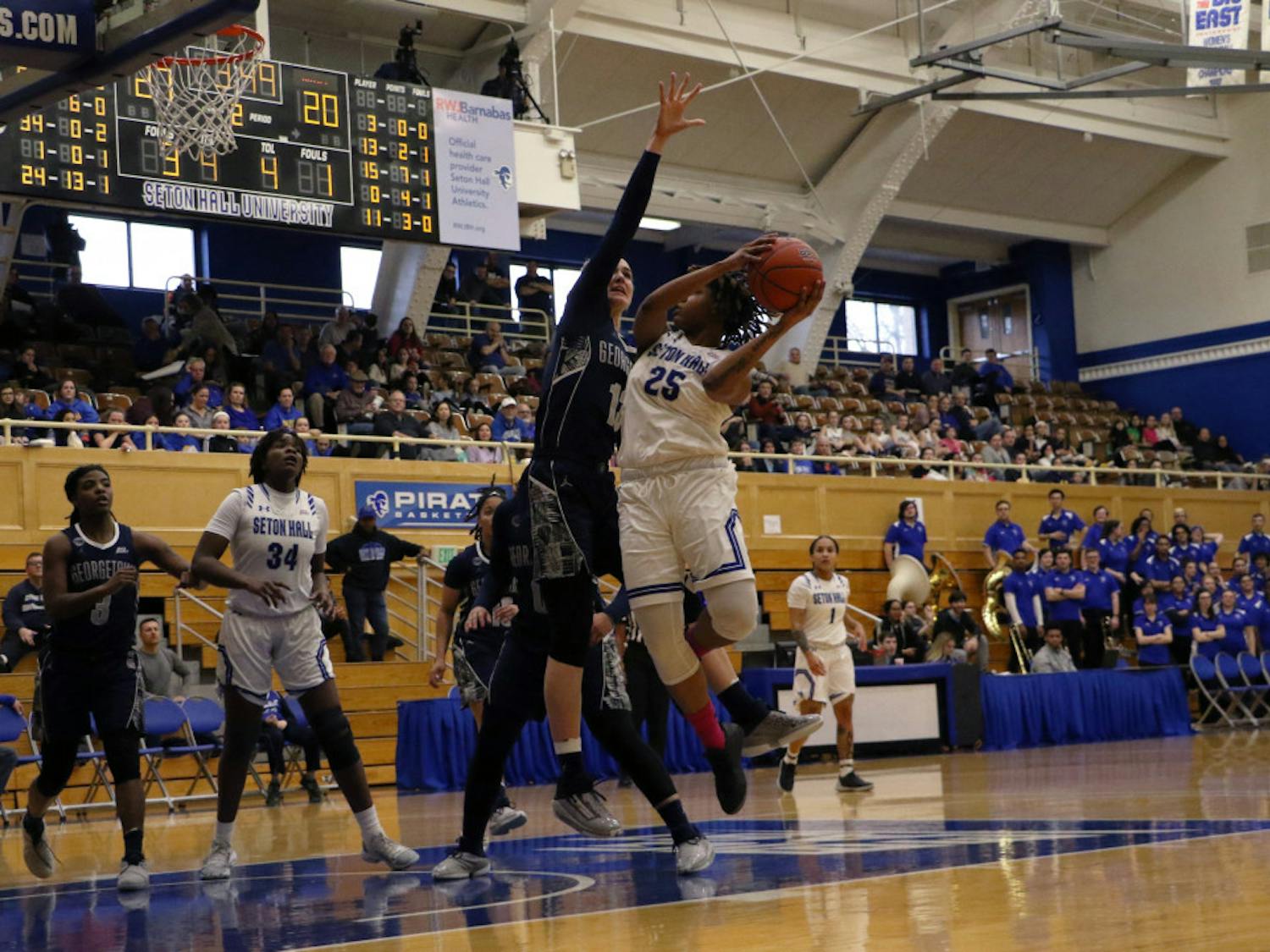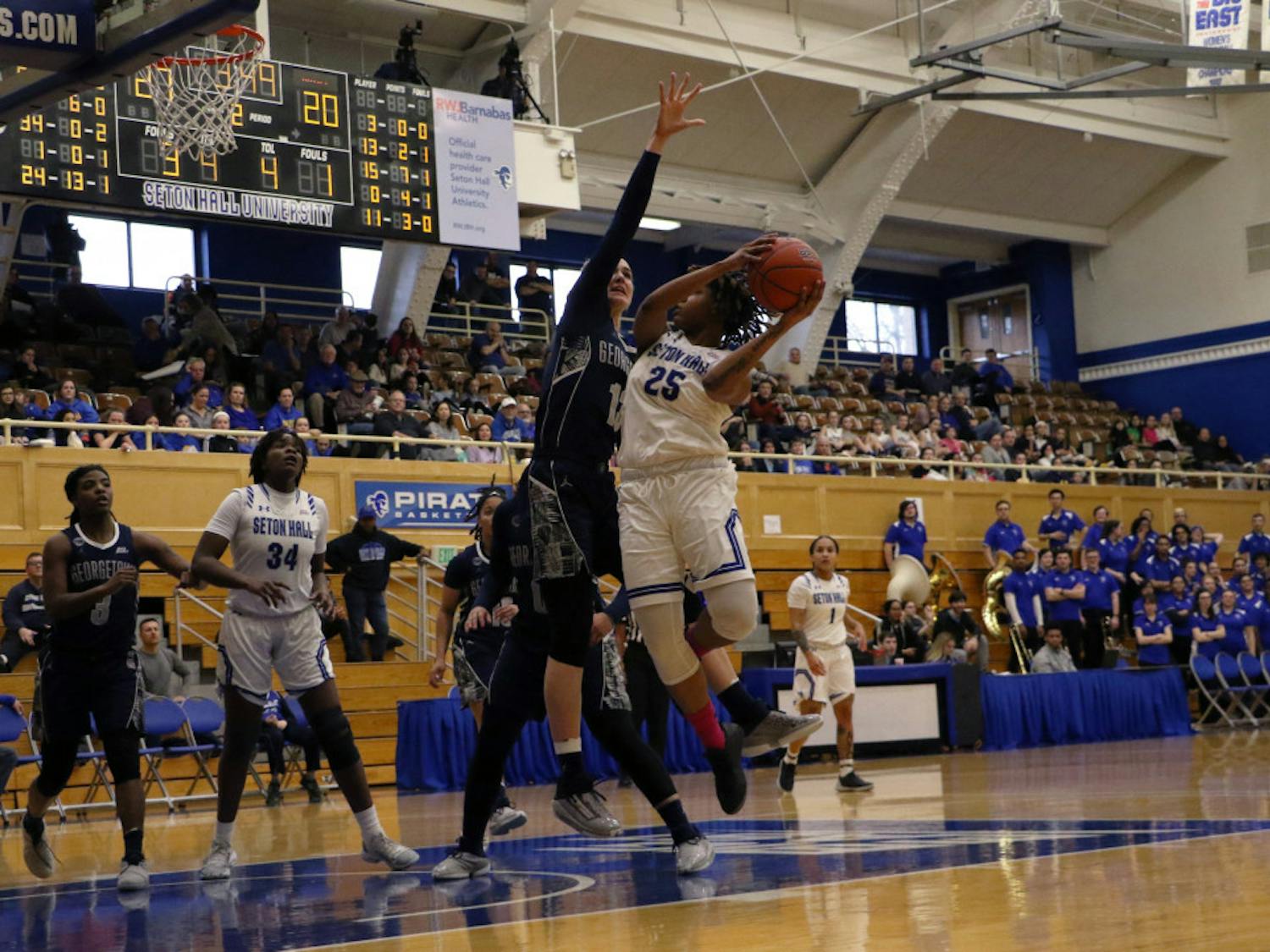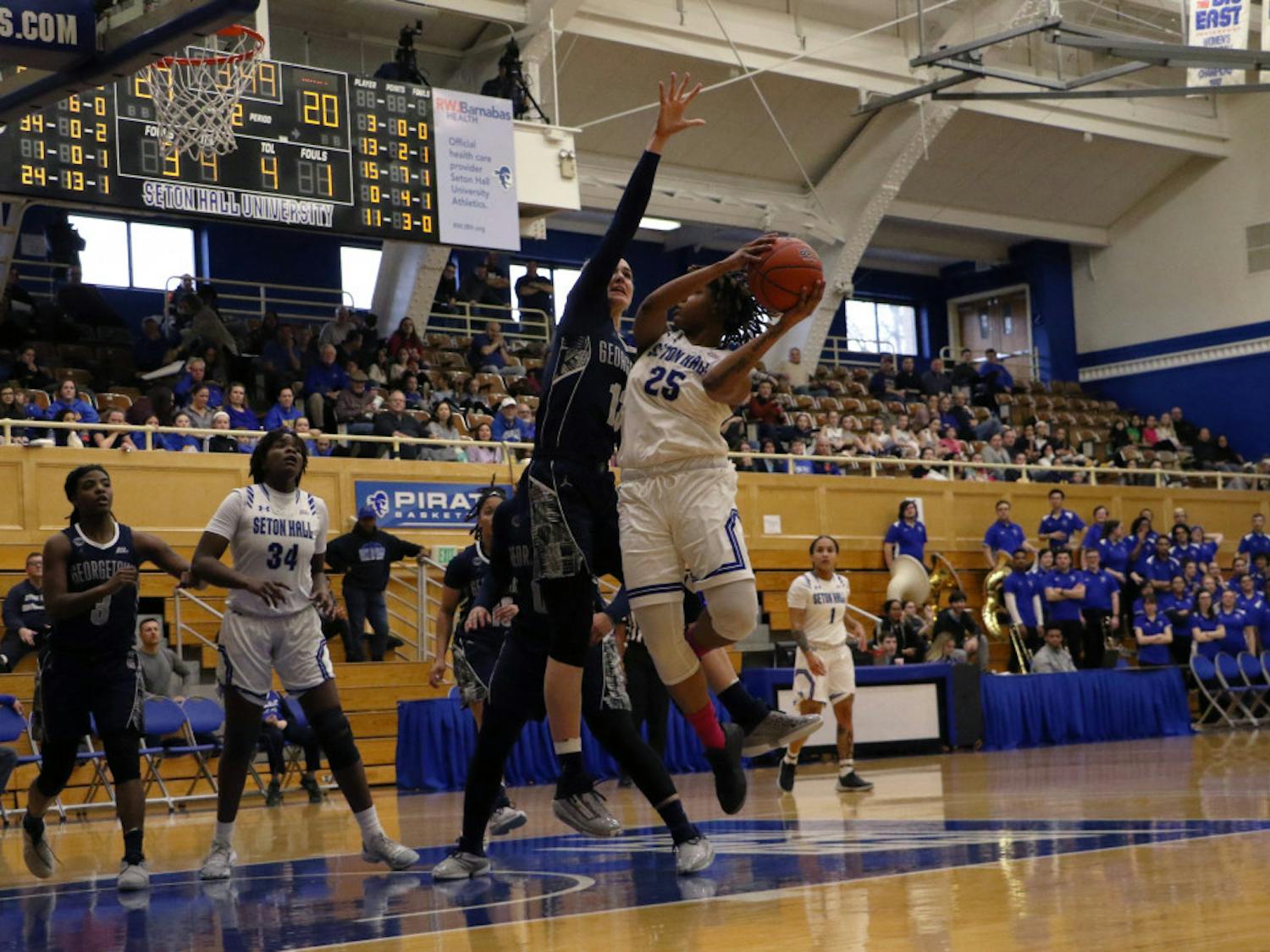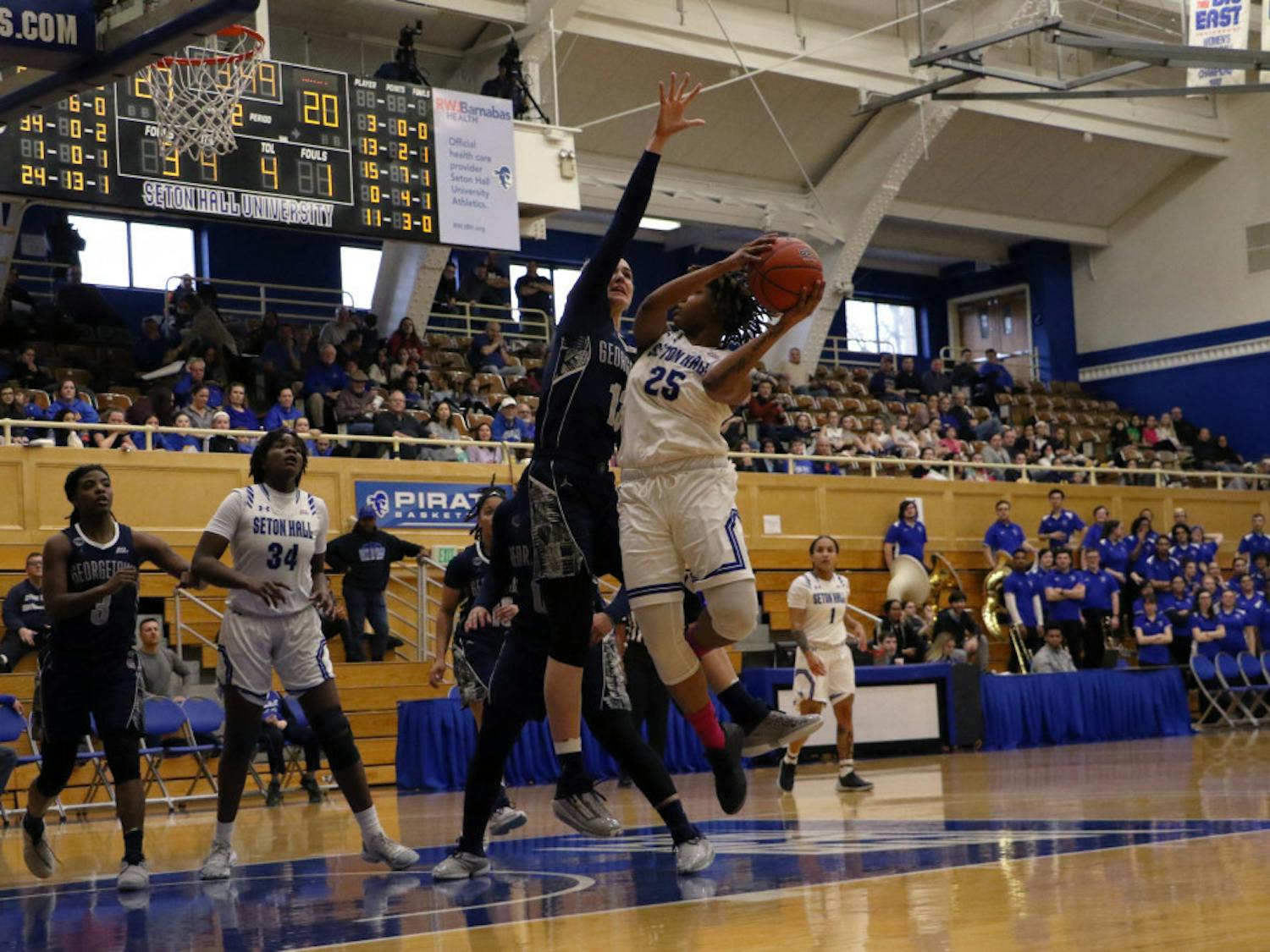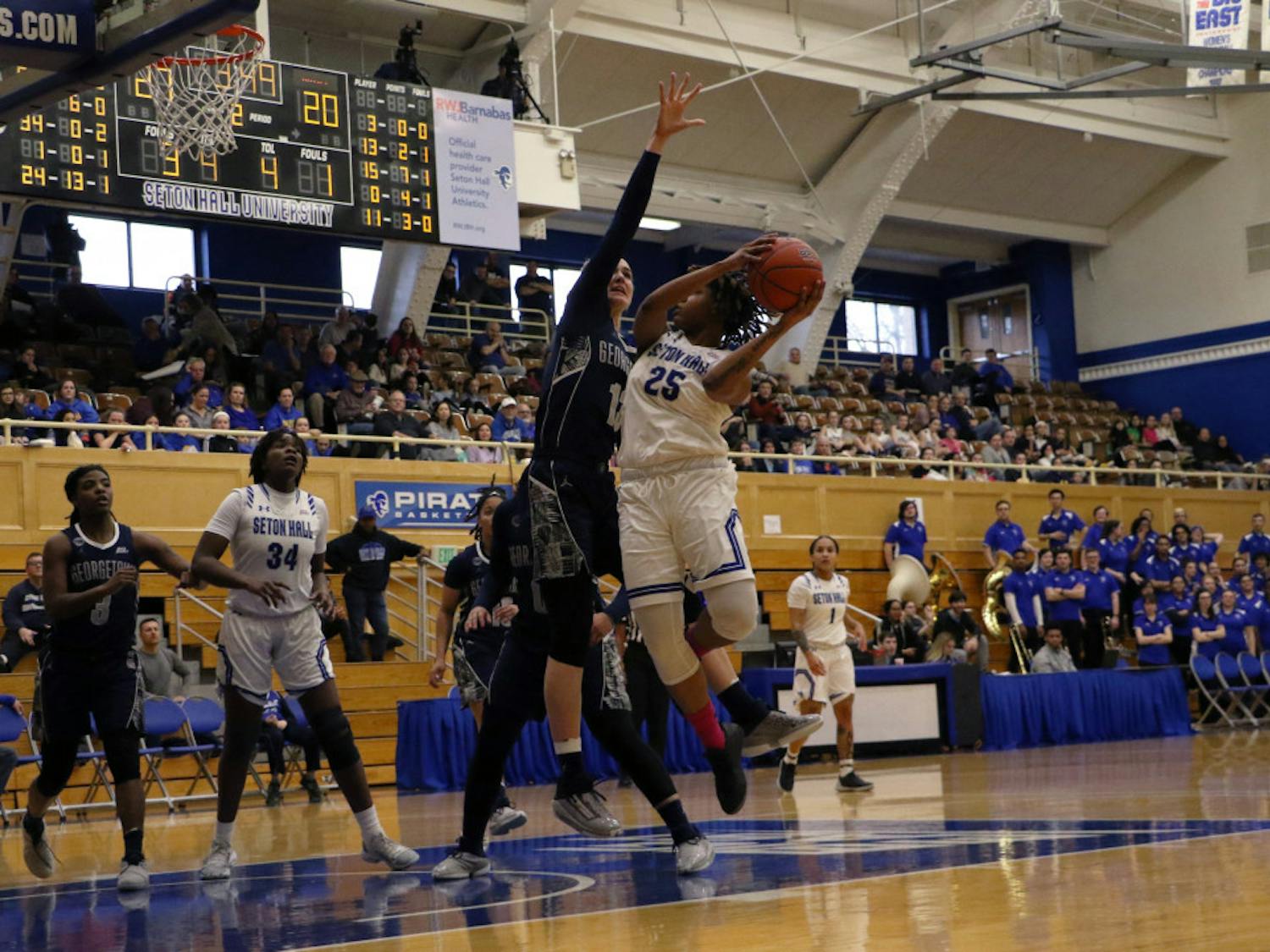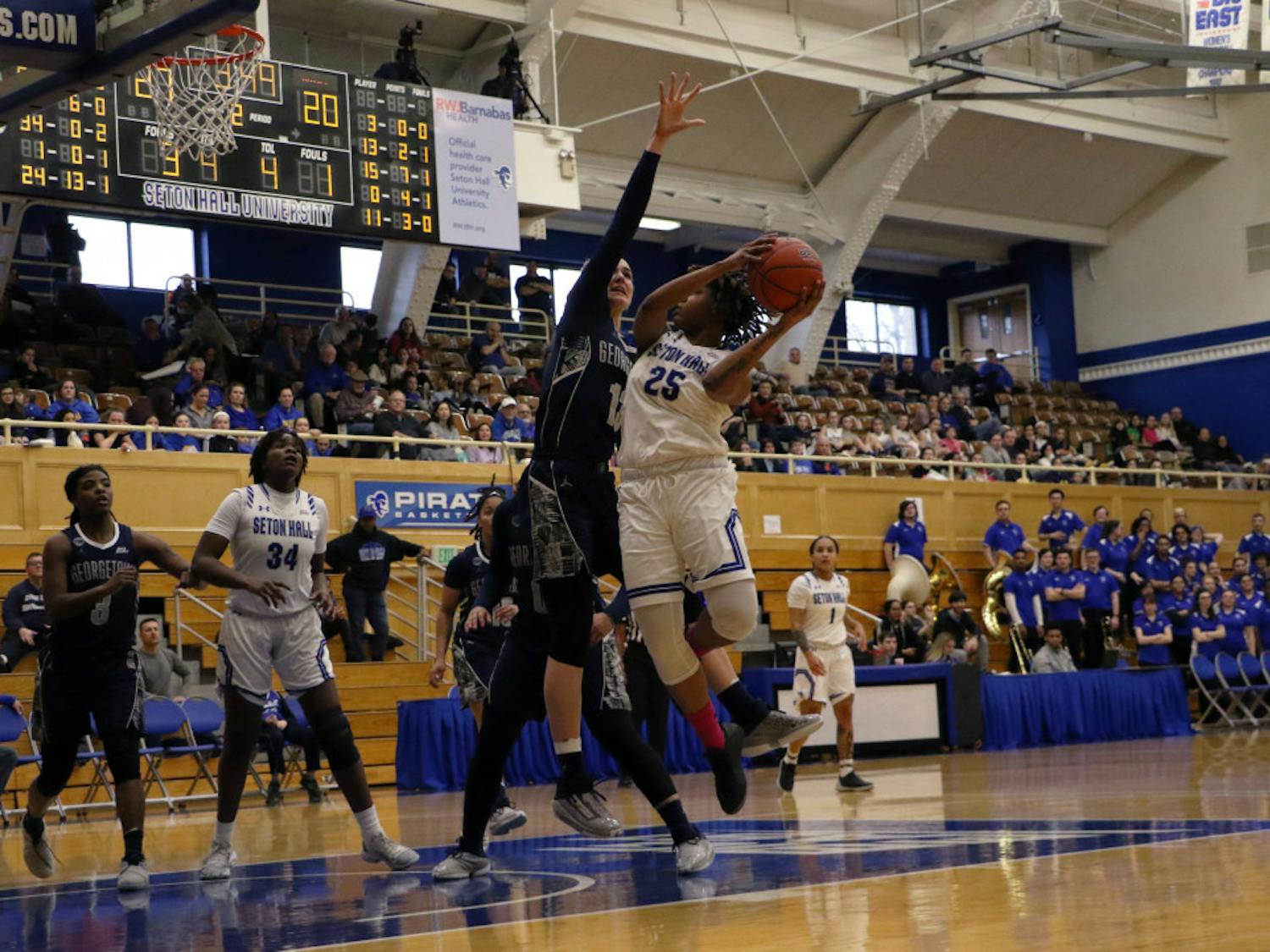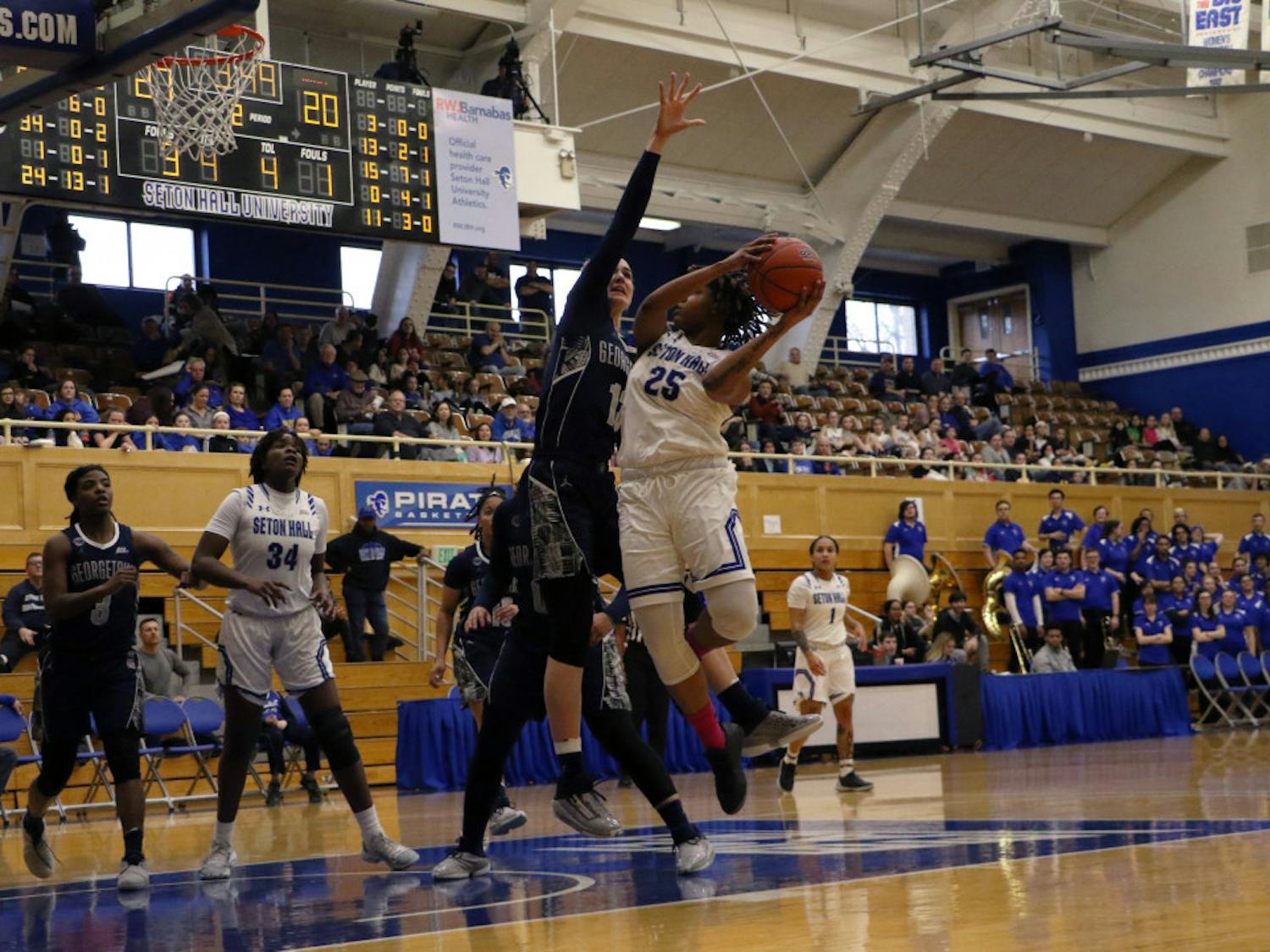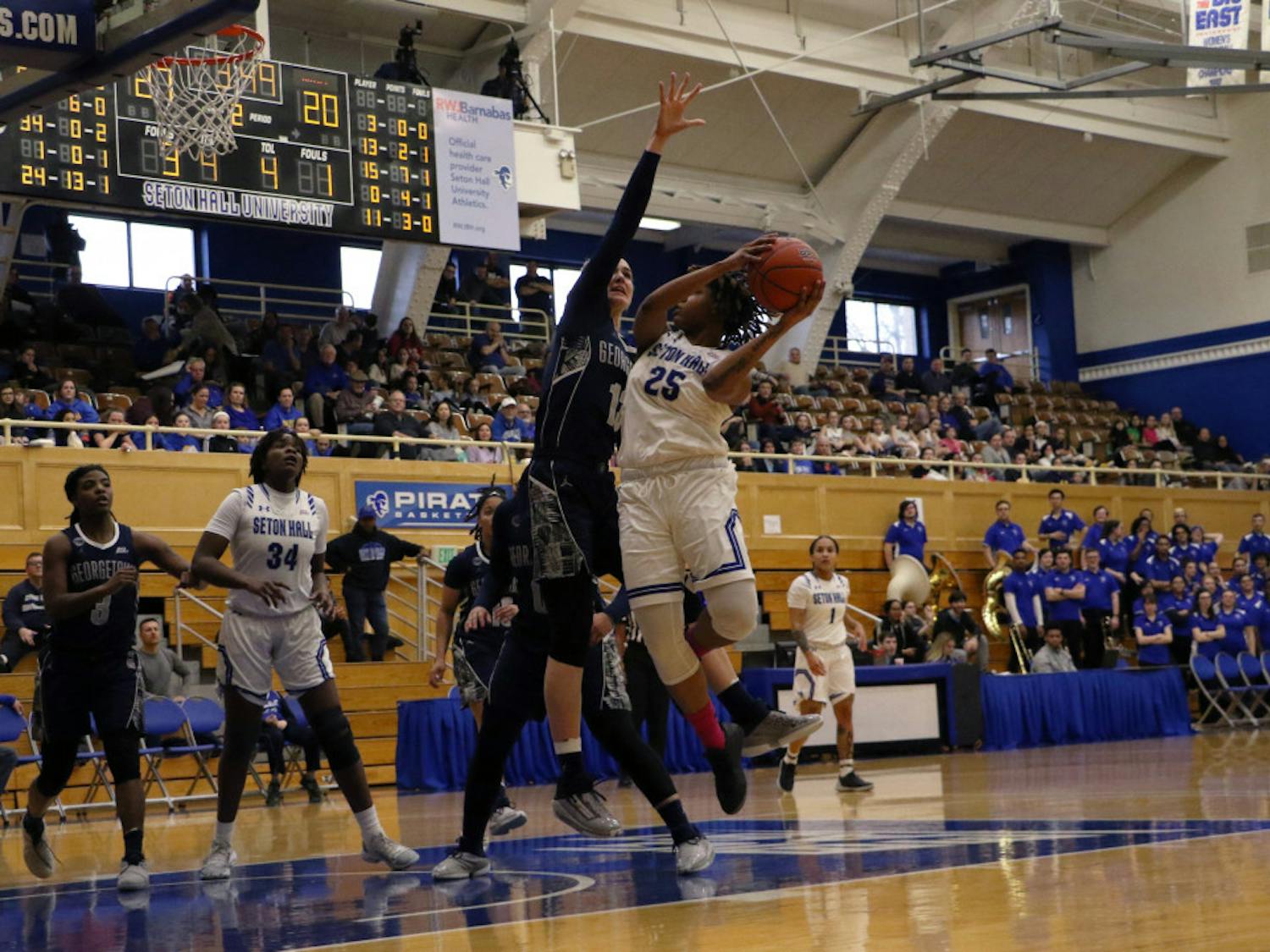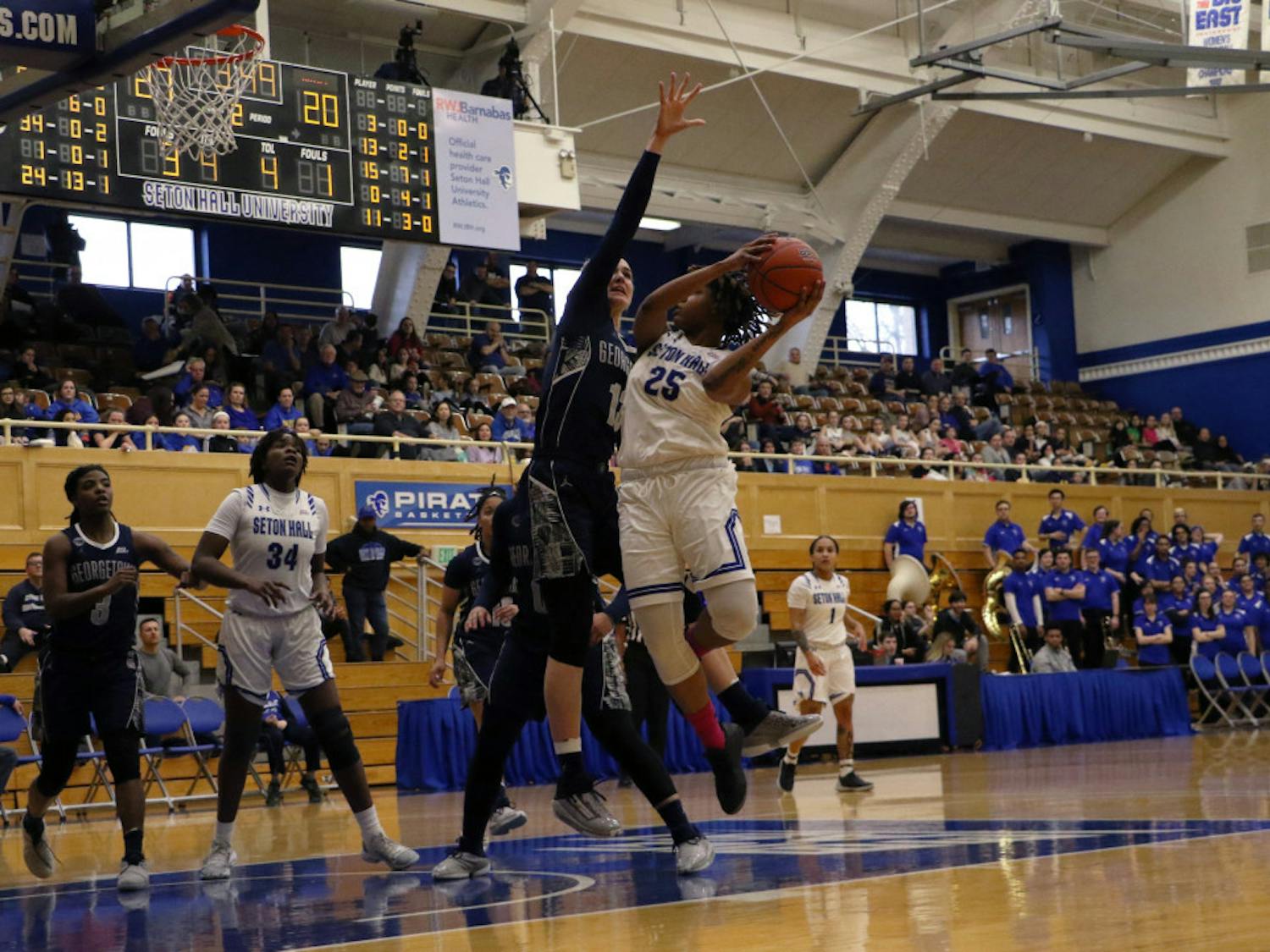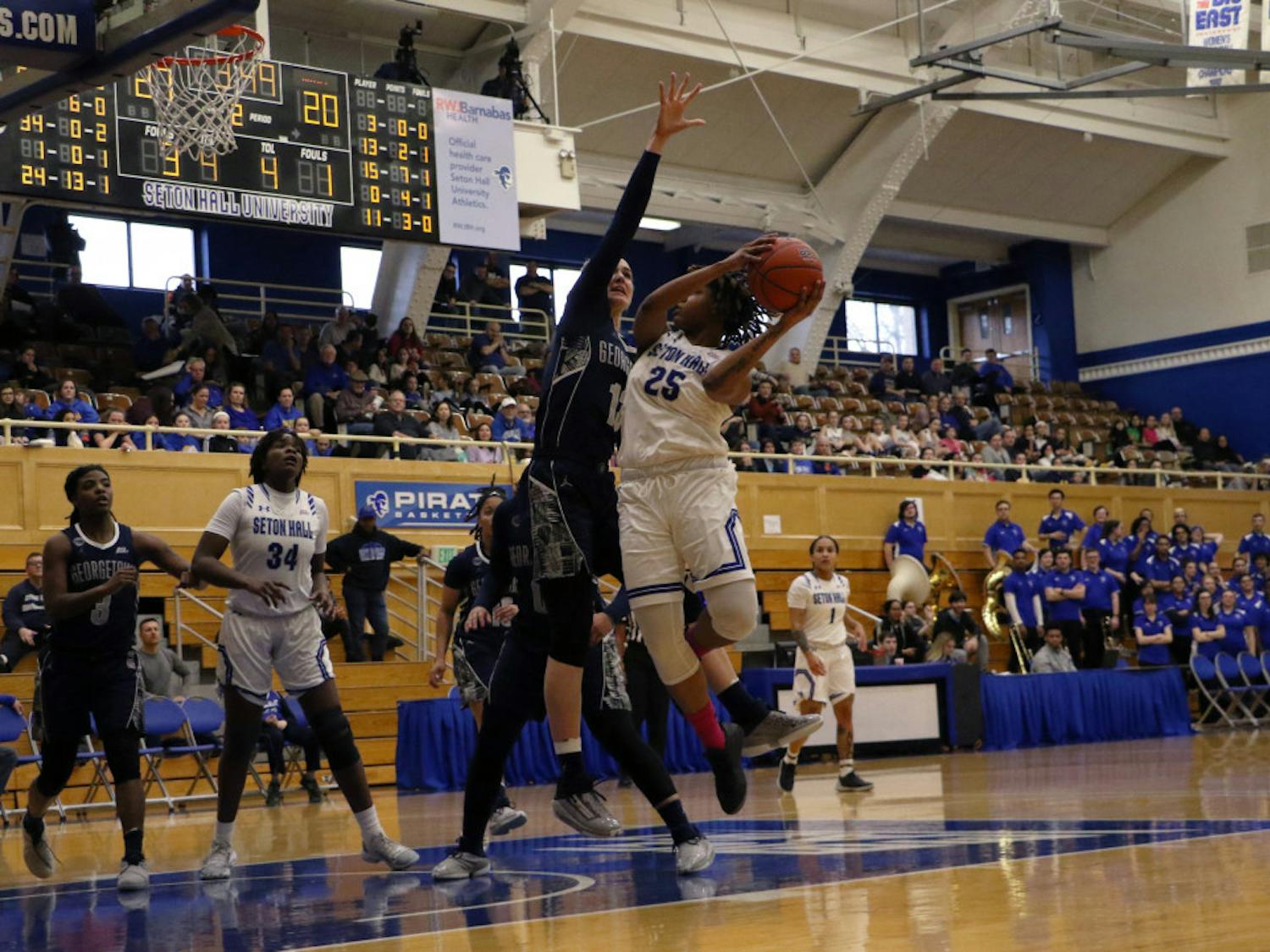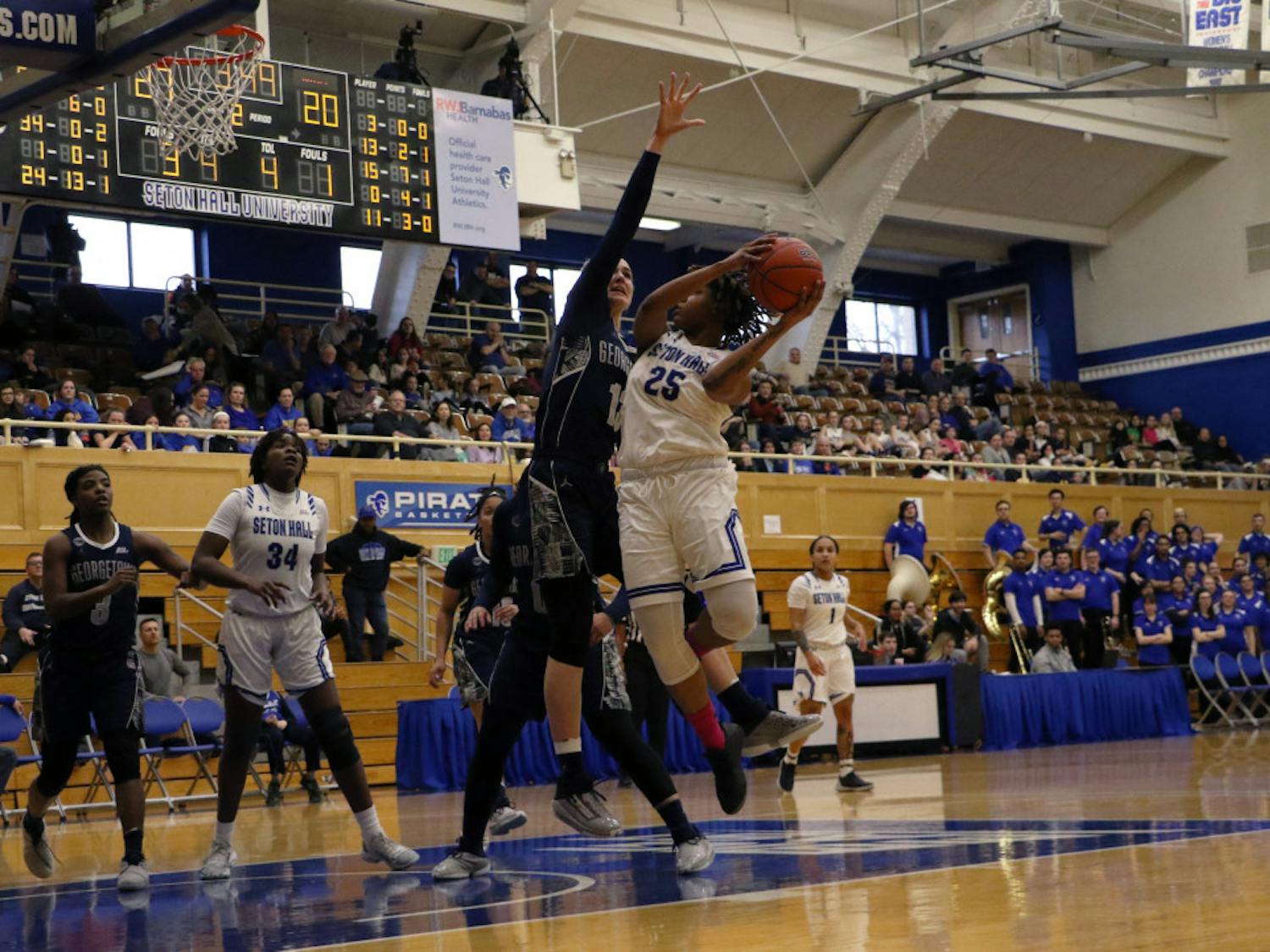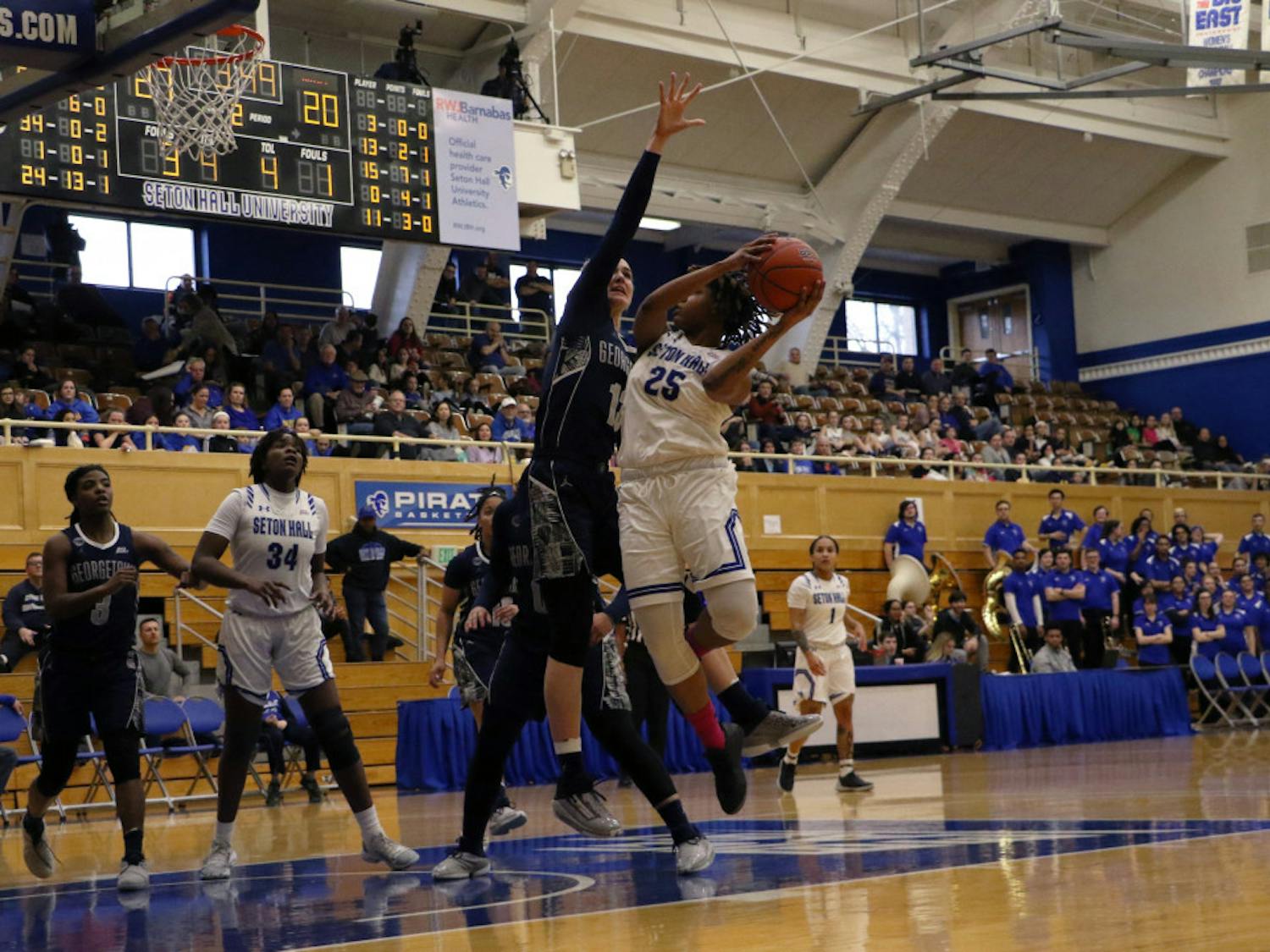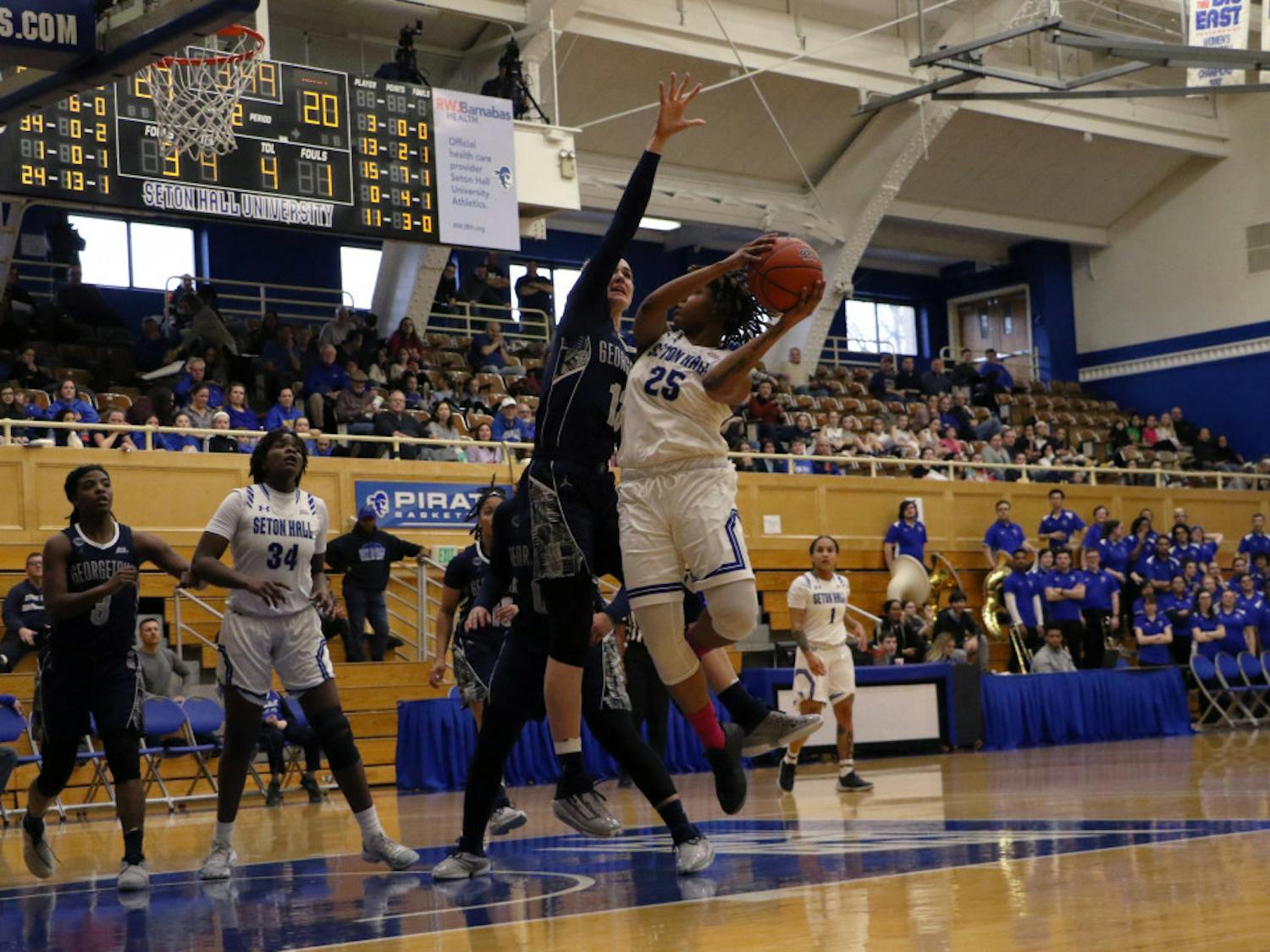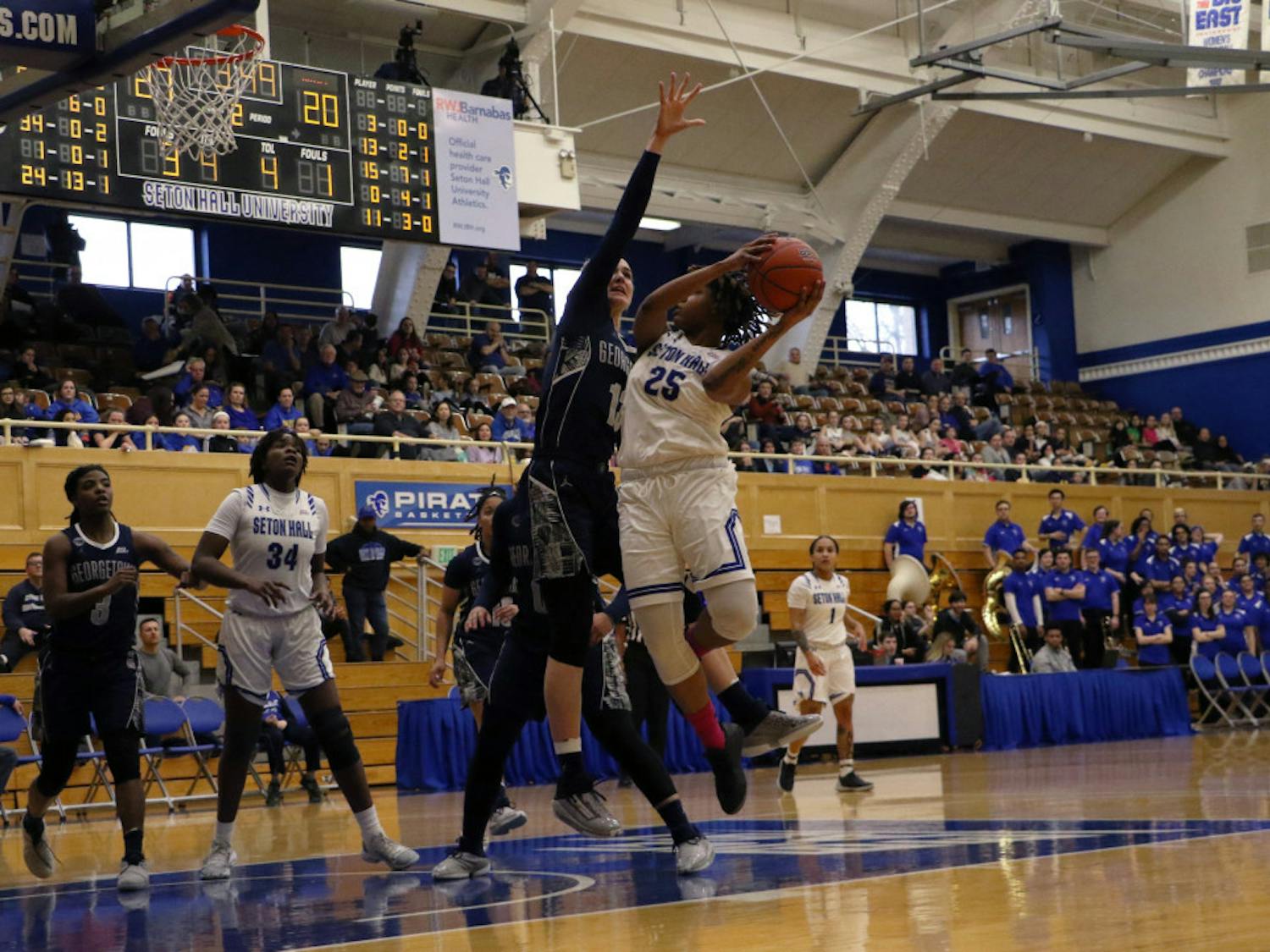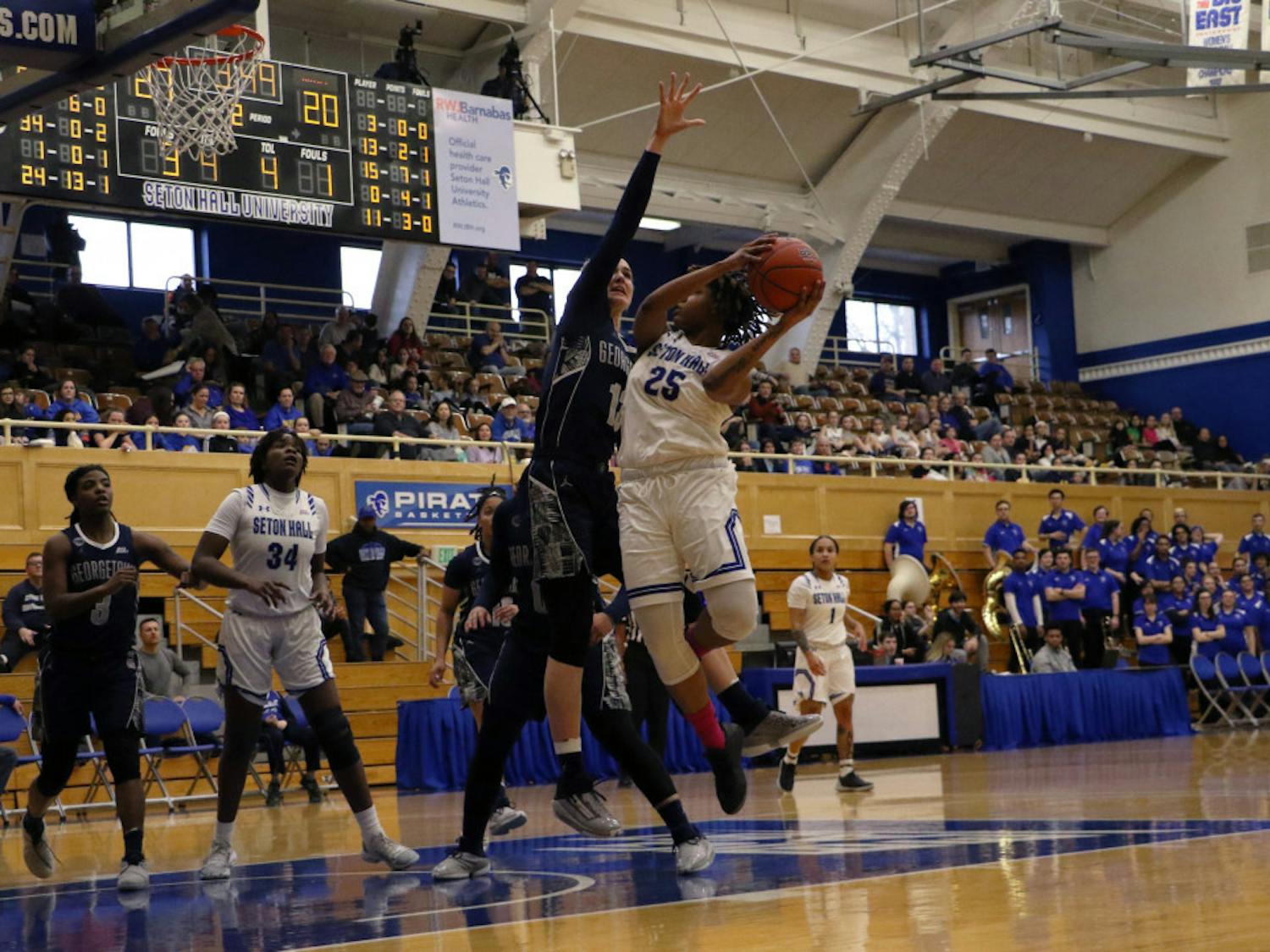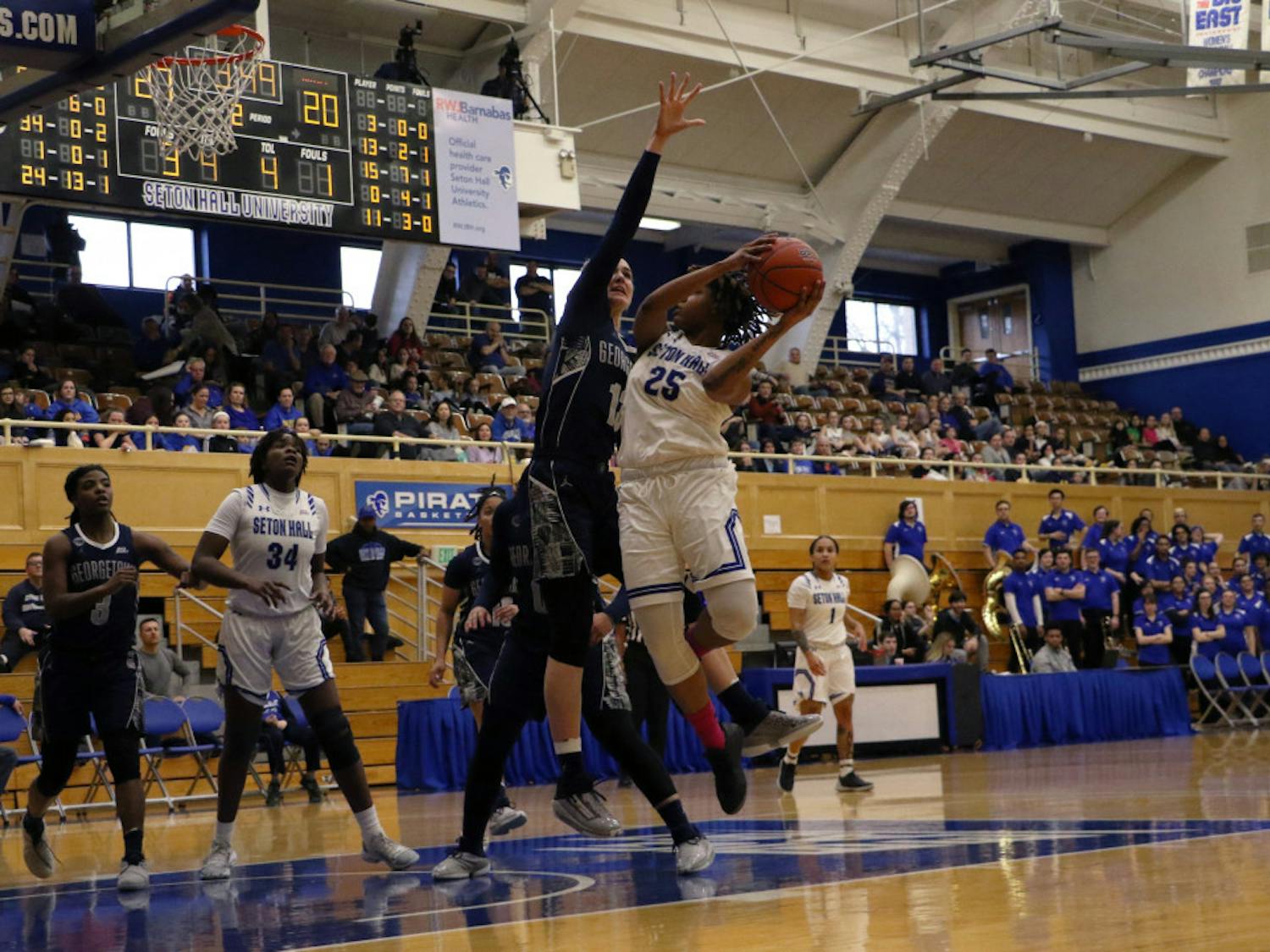THE VOICE EDITORIAL
New College of Communication lacks communication
By Editorial Board | October 28Earlier this week, hundreds of students gathered in Jubilee Auditorium for the convocation of the new College of Communication and the Arts. Guided by luminaries, we walked in scattered packs across the Green and ignited plastic candle stubs as a school to signify a new start. In the fall evening breeze, plastic collapsible tables that once held crisp new T-shirts stood bare, greeting the final arriving students, a stark contrast to the jubilant atmosphere across campus in the auditorium. In the dark, eerily lit driveway in front of the University Center, as we arrived at our final destination we wondered, what’s next? What is next? And from a student perspective, what does it all mean? Ample rumors abound of new classes, a new core and even new resources, but what is the timeframe and who will reap these new benefits? In the paper this week announces an anticipated renovation of Mooney Hall as a part of a campus “Master Plan,” but the University at this time will not release further information of the changes. As registration approaches quickly, the question arises of whether there will be new courses or new requirements. The lack of information reflects the process of the college. Although The Setonian reported on initial discussion of the proposed school, the announcement came as somewhat of a shock. As students, we understand that this is an amazing opportunity with our best interest in mind, but we can’t help but wonder, what other surprises are hiding down the line? The fact is, the definitive information students have of the new college right now seems like hearsay. Seniors are resentful of the fact that we will not be here to enjoy the promised land of opportunity associated with this new title. We keep asking questions like, what will these new resources be? Although we are grateful for the recognition and the hard work that went into the formation of the college, transparency moving forward would help us feel like a part of the process. Right now many questions remain, specifically as convocation marked the official formation, we ask, what’s next?
Student newspaper striving to serve community
By Editorial Board | October 21As a student newspaper, it is our primary goal and responsibility to pursue the truth constantly and unwaveringly in an effort to not only be an accurate voice for all members of the community, but also to provide useful daily information and ultimately a historical record for years to come. We pursue this goal relentlessly. We spend hours upon hours every week huddled in an office, elbow-to-elbow at a conference table and constantly connected via text, phone calls, social media and email. Throughout this entire process, we are continuously thinking about you, the Seton Hall Community. This week, we have released a detailed crime report on South Orange, which required months of preparation, and an article regarding a memorandum released by the Archdiocese of Newark which some feel consequently disparages a community of students on campus. We send our publication to the printer with pride knowing that the next day when we deliver the bundles throughout campus, we might make students a little safer or we might make unheard voices a little louder. As a student newspaper, like many other student-run organizations, we admit that sometimes we struggle to manage an upcoming ethics midterm, a history paper and on top of that, an entire section of this publication. We sometimes let our passion get the best of us and skimp on studying to score that perfect interview. We do this because we are passionate about you, the community and this campus that we are lucky enough to be a voice for. We hope that you, in turn, not only lend us an ear, but let us know the topics that are most important to you. As a student newspaper, we know that our target audience is more likely to read a newly refreshed Twitter feed while waiting for class than to thumb through 16 pages of newsprint. But we are constantly trying to improve and adapt to be the source you need on all media. We hope that our efforts accomplish what we set out to do: Be a voice, an almanac of sorts, a history book, and a starting point for discussion and change.
International celebrations should be year-long
By Editorial Board | October 7October kicks off International Month on campus at Seton Hall. Activities include a variety of cultural experiences such as a free Japanese cuisine tasting and a foreign film festival. Celebrating diversity for a month on campus is a great way for students to learn about other cultures, but shouldn’t every month be treated as International Month? Seton Hall has many options for students to immerse themselves in different cultures that they might not be aware of that could be utilized throughout the year. Seton Hall has almost 20 clubs categorized as cultural or religious-based. These include, but are not limited to, clubs such as the Asian Student Association, French Club, Slavic Club, African Student Association, Italian Student Association and many more. Additionally, Seton Hall is also home to Multicultural Greek Organizations under the Multicultural Greek Council (MGC). According to the Seton Hall website, the Council is “committed to en hancing the multicultural presence on campus. The council seeks a more diverse co-existence between fraternal and sorority orders while maintaining good faith with the University.” The MGC includes 13 organizations on campus. All of them host events that would benefit students’ exposure to different cultures throughout the year, not just during the month of October. Students might not be aware of the opportunities that Seton Hall has available to immerse themselves in different cultures on a service trip or a semester abroad. There are summer faculty-led programs in Spain, France and Italy, just to name a few. Other students who qualify can study across the globe for an entire semester through Seton Hall or a third-party provider. Celebrating diversity is extremely important, especially on our campus where we have representation of students from over 70 countries, according to the Seton Hall website. Although International Month is a wonderful way to highlight different cultures, the effort should not stop there. Hopefully this year International Month doesn’t have to end with the start of November. Students shouldn’t stop after fun food truck events or film festivals. These events should be utilized as a window into the international education and involvement opportunities that SHU has to offer. This event should be celebrated as a starting point and an educational opportunity to engage students in the community.
Emphasis on earnings distracts from passions
By Editorial Board | September 23The U.S. Department of Education has released its much-anticipated College Scorecard Data and it contains three new categories absent from other studies: graduation rate, earnings and student loan repayment. Many have noted that the earnings information is lacking a breakdown of salary after graduation by major. Instead, it ranks a school as a whole, and displays a percentage that reflects, on average, the chance of graduates making more than they would with just a high school diploma. This creates a situation in which liberal arts-centric schools might score lower compared to schools with successful STEM-related programs. College is a time where idealism is encouraged. Especially at Seton Hall, where liberal arts courses are a core requirement, we find value in taking classes like philosophy and religion. In a society where millennials are under more pressure than ever to pile on the internships in addition to competitive courses in the pursuit of job security, displaying earnings by major would discourage prospective students from pursuing what might be their passion before they even enter the realm of collegiate academia. The second most popular degree among the top 50 people at the top 200 firms on Wall Street. is philosophy. Carly Fiorina, former Hewlett-Packard CEO, was a medieval history and philosophy major at Stanford. Gerald Levin, former Time Warner CEO, was a philosophy major at Haverford College. Peter Thiel, a co-founder of PayPal, was a philosophy major at Stanford, just to name a few. Majors should not be pitted against each other by their predicted monetary value. These examples show that success cannot be fully predicted by data, and the breakdown might discourage the liberal arts outliers, who could potentially be the billionaires. At Seton Hall, we have notable and well-respected business and science programs, but as these examples and our curriculum show, liberal arts still plays a vital role in education. If the emphasis keeps being put on what makes the most money at such a young age, a rich history might be lost and students might be discouraged from exploring courses they are truly passionate about like philosophy, history and religion.
Yes, discrimination exists, now let’s stop it
By Editorial Board | April 29As this is the last paper of the semester, The Setonian would like to discuss an important issue that has been emerging in our country and to call on the millennial generation to put a stop to it: discrimination. Whether it be gender, racial or religious mistreatment, there is no denying our nation is not perfect. An article this week, written by Leah Carton, highlights the Dr. Martin Luther King, Jr. Leadership Program’s efforts to bring awareness and education to younger students, as we are the ones to make the change. The disruptive conflicts over same-sex marriage and police brutality are just some of the many debates over how this country deals with minorities. Innocent people have been discriminated against for too long and it is just now being brought to light. Riots in Baltimore have erupted as a reaction to the unexplained death of Freddie Gray after he was hauled off into a police van. While looting and arson is never the answer, as Dr. King, Jr., would have condemned as well, they may be seen as manifestations of the frustration many people feel at what has been happening in our society. Until everyone admits that there is a problem and vows to end it, we cannot move forward. And it is not going to change simply by saying “I have an African American or gay friend, so I am not prejudiced.” No. It is by saying that there are unequal employment rates. According to the 2013 employment report by The Equal Employment Opportunity Commission, the percentage of white men making 70K or higher is at 48.4 percent while only 6.1 percent of black men received as much. For white women it was at 21.2 percent and for black women 5.5 percent. That is a serious gap. It also will change by saying there is a problem with how police handle minorities. According to the NAACP, African Americans are incarcerated six times as much as whites. They also reported that 14 million whites admit to using illicit drugs while only 2.6 million African Americans do. However, African Americans are sent to prison for drug offenses 10 times more often than whites. The facts are, and always have been, here. We cannot deny them anymore.

